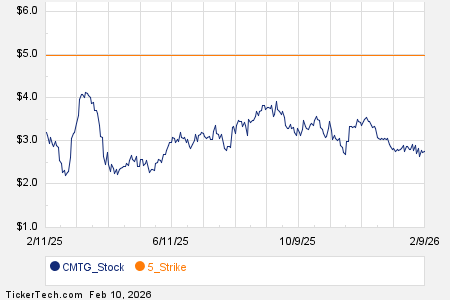The majority of financial experts concur: holding off until the age of 70 to claim Social Security is a prudent move. Why? The rationale is crystal clear — more significant monthly payouts. While individuals can begin receiving benefits at age 62 based on their work history, delaying past that age results in incrementally larger checks each month. The disparity is significant. Those who claim at 70 can enjoy a check a whopping 77% heftier than if they had claimed at 62.
Given the upward trajectory in life expectancy rates over time, waiting until 70 can optimize lifetime benefits for the vast majority of retirees. With that in mind, let’s delve into the average Social Security benefits a retiree can expect at age 70.

Image source: Getty Images.
The Key Factors Impacting Your Social Security Payout
Three primary factors influence the amount you’ll receive in monthly Social Security retirement benefits:
- Your earnings history
- Your full retirement age
- The age at which you apply for benefits
Each January, the Social Security Administration collates information from your employer on your previous year’s earnings (for self-employed individuals, this data is gleaned from tax returns). When computing your retirement benefits, the administration considers the inflation-adjusted 35 highest-earning years and calculates your average monthly income from them. This figure is then fed into the Social Security benefits formula to ascertain the amount you’re entitled to if you claim benefits at your designated full retirement age, also known as your primary insurance amount.
Full retirement age hinges on your birth year. Individuals born in 1954 or earlier attained full retirement age at 66, with subsequent birth years witnessing a two-month increment. For those born in 1960 and beyond, full retirement age is set at 67.
By the time you retire, with these pivotal factors determined, the only variable within your control that can affect your monthly payout is your chosen claim age. Opting to claim before reaching your full retirement age will result in payments lower than your primary insurance amount, with a fraction of a percent reduction for each month claimed early. Conversely, delaying past your full retirement age enables you to accrue delayed retirement credits boosting your check by 0.67% monthly up to age 70, translating to an 8% annual increase.
Here’s a breakdown of claiming Social Security at different ages for someone with a full retirement age of 67:
| Claiming Age | Benefit as a Percentage of Primary Insurance Amount |
|---|---|
| 62 | 70% |
| 63 | 75% |
| 64 | 80% |
| 65 | 86.67% |
| 66 | 93.33% |
| 67 | 100% |
| 68 | 108% |
| 69 | 116% |
| 70 | 124% |
Data source: Social Security Administration. Calculations by author.
The Average Social Security Benefit at Age 70
Undoubtedly, waiting until 70 results in a significantly larger monthly benefit compared to claiming early.
This disparity is evident in the data as well. In December 2022 (the latest data available from the Social Security Administration), the average benefit for a 70-year-old stood at $1,963.48. In contrast, the average 62-year-old received a mere $1,274.87 in benefits during the same period.
It’s crucial to note that the majority of 70-year-olds currently receiving Social Security benefits began claiming well before reaching 70. Consequently, the average benefit at 70 isn’t wholly representative of the difference that delaying until the maximum retirement credits have kicked in can make.
In 2022, nearly 309,000 individuals opted to wait until age 70 to apply for Social Security benefits, receiving an average monthly benefit of $3,027.00. This amount exceeds the average benefit for all 70-year-old recipients mentioned earlier by more than 50%.
Comparing this to what the average retiree who claimed benefits at 62 received highlights an even more notable impact. In 2022, the 808,000 retirees who opted for Social Security benefits at age 62 received an average benefit of just $1,287.61. That marks a staggering yearly difference of $20,873 compared to those claiming at age 70.
Should You Delay Claiming Until 70?
On average, an individual can expect their benefits to increase by around 77% if they delay claiming from 62 to 70. Conversely, the typical person applying for benefits at 70 receives approximately 135% more than those applying at 62.
This discrepancy suggests that those who hold off claiming until 70 generally earned higher salaries over their careers compared to those claiming at 62. This could stem from the fact that individuals delaying until 70 likely continued working during their 60s when earnings were at their peak. In contrast, some retirees claiming at 62 may have had their work trajectory curtailed due to health issues or a sudden job loss later in their career, making it the prudent choice for them to claim early, albeit at a reduced monthly benefit.
For retirees without health challenges, able to pursue full careers, and save significantly for retirement, delaying their claim until 70 will likely prove more beneficial. Despite forgoing eight years of initial Social Security checks, this strategy typically yields superior long-term results.
Early retirement years can be utilized to devise a tax-efficient retirement account withdrawal plan, leading to eventual enjoyment of amplified Social Security benefits. United Income’s 2019 study revealed that delaying Social Security until 70 optimized retirement affordability for the majority of retirees.
It’s no wonder why financial experts overwhelmingly advocate for delaying Social Security claims until 70 for those who have the means. While individual circumstances vary, this approach tends to yield the best outcomes for a large portion of the population.
The $22,924 Social Security bonus most retirees overlook
If, like most Americans, you’re lagging behind in your retirement savings, uncovering a few lesser-known “Social Security secrets” could potentially boost your retirement income. For instance, a simple technique might net you an additional $22,924 annually. Once you grasp the art of maximizing Social Security benefits, you can retire with a sense of security that we all aspire to. Simply click here to explore further strategies.
View the “Social Security secrets”
The Motley Fool adheres to a disclosure policy.
The opinions expressed in this article are solely those of the author and do not necessarily reflect the views of Nasdaq, Inc.






